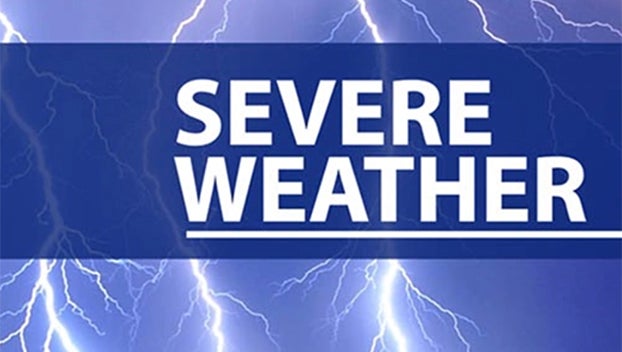More COVID-19 vaccinations are on the way
Published 6:05 am Wednesday, January 6, 2021
|
Getting your Trinity Audio player ready...
|
By Dawn Burleigh
Doses of the COVID-19 vaccine began arriving in Texas in mid-December, marking a significant milestone in the battle against the virus. But it will be months before vaccine doses are widely available, and the rollout is leaving eligible Texans with more questions than answers.
For now, the limited supply is reserved for front-line health care workers and certain high-risk populations, or what is referred to as Phase 1A.
State health officials announced just before Christmas that older people and those with qualifying health conditions are next in line.
“Myself, Joel and the Emergency Management Team have been working diligently to get the vaccine in our area,” Orange County Judge John Gothia said. “I know pharmacies such as Walgreens, CVS, and one other just signed contracts yesterday for the next batch.”
While the county was originally set 200 vaccines for the county, Gothia said he asked for more for the county and the area will receive more than originally scheduled for the county.
“We are working through the logistical aspect,” Gothia said. “They have to have a way to store and give the vaccine.”
The vaccine has a short shelf life so it must be distributed in a certain amount of time.
A pharmacy in Vidor received 200 vaccines and has administered 20 a day to stay within the guidelines.
“When it is available for public access information will be provided on when and where to go,” Gothia said. “We have been working with State and Federal government to make sure we get our fair share. If it was our call, we would have 84,000 right now.”
Texas is currently in Phase 1A of its vaccine distribution. Only front-line health care workers and long-term care residents and staff are eligible to receive doses of the vaccine at this time.
Phase 1B will prioritize Texans who are 65 years and older and people who are at least 16 with a qualifying health condition that puts them at an increased risk for severe illness from COVID-19. According to the Texas Department of State Health Services, qualifying conditions include, but are not limited to:
- Cancer
- Chronic kidney disease
- Chronic obstructive pulmonary disease
- Heart conditions, such as heart failure, coronary artery disease or cardiomyopathy
- Solid organ transplantation
- Obesity and severe obesity
- Pregnancy
- Sickle cell disease
- Type 2 diabetes mellitus
There are about 1.9 million eligible Texans in Phase 1A, which is more than the state’s current allocation of 1.4 million doses through the end of the month. That means the state is still focusing its current resources on vaccinating health care workers and nursing home residents.
The vaccine will be available at a range of health care providers — like health clinics and hospitals — but most people will likely get vaccinated at their doctor’s office or a pharmacy.
The U.S. Centers for Disease Control and Prevention requires that vaccine doses purchased with taxpayer dollars be given at no cost. But providers are allowed to charge an administration fee, which can be reimbursed through insurance. People without insurance will not be charged, according to DSHS.
For people covered under Medicare or Medicaid, the federal government will cover the cost of the vaccine and any fees.
Texas’ COVID-19 vaccination plan requires providers to administer the vaccine “regardless of the vaccine recipient’s ability to pay COVID-19 vaccine administration fees.”
Although some Texans have expressed hesitancy toward the vaccine, health experts and public officials widely agree that the vaccine is safe. The two currently approved developers — Pfizer and Moderna — reported their vaccines are 95% and 94% effective, respectively.
While no vaccine is without side effects, clinical trials for both Pfizer and Moderna show serious reactions are rare.
Moderna vaccines are the ones available at this time for Phase 1A.
Abbott received his first dose of the vaccine, telling reporters, “I will never ask a Texan to do something I’m not willing to do myself.”
Orange County Judge John Gothia said it was important to not overload the system.
“We share a health department with Hardin County,” Gothia said. “We have to wait until the local locations are ready to start administrating the vaccinations. They just side the contracts yesterday [Monday].”
Texas Hospital Association (THA) encourage the public to consider these “dos and don’ts” to access the COVID-19 vaccine.
DO:
- Do your research. Go online and check your doctor, local hospital, local pharmacy or local health department’s website and/or social media for vaccine availability information.
- Be patient. Know that vaccines are only available in limited quantities and that vaccinations for certain populations, especially health care providers and first responders, take precedence.
- Check your eligibility. The Texas Department of State Health Services’ Vaccine Web page explains who is eligible to receive a vaccine and when.
- Understand there is regional variability. Some regions may have vaccine available while others may not.
DON’T:
- Just show up. Please do not arrive at your health care providers office looking for the vaccine or information.
- Assume your local provide has vaccine available or that you can be vaccinated right away.
Vaccine availability still is in limited supply for the general public. Texas hospitals are eager to vaccinate as many people as possible as soon as possible. In addition to launching an unprecedented vaccination effort, hospitals are grappling with daily record-breaking COVID-19 hospitalizations and are fighting to save the lives of the sickest, most vulnerable Texans.
“We’re in this together, and we’re asking folks to be mindful of an organized approach. Health care workers are moving as fast as possible to get shots in arms,” said Ted Shaw, THA president/CEO.
Texas hospitals ask members of the general public to be conscientious in their pursuit of vaccination and do their part to ensure an organized approach that paves the way for vaccinating the people of Texas as quickly as possible.






